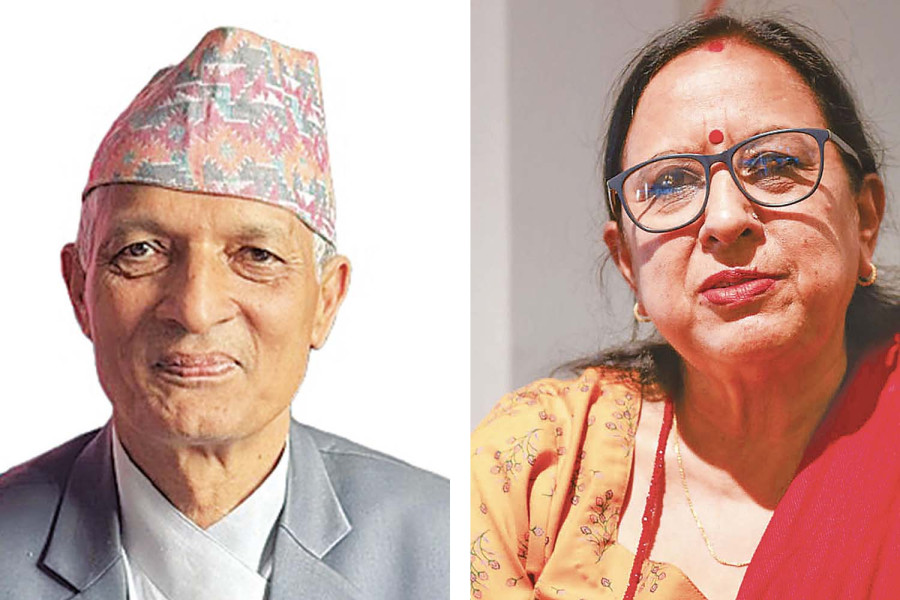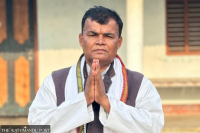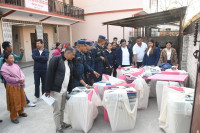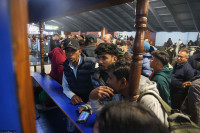National
Conflict victims lobby to correct transitional justice appointments
Plan to urge the international community, including UN bodies, to play their role in correcting the process.
Post Report
As the newly appointed leadership of the two transitional justice commissions—the Truth and Reconciliation Commission and the Commission of the Investigation on Enforced Disappeared Persons—expedites preparatory works to take up their responsibilities, the insurgency-era victims have started lobbying to correct the appointments, citing a lack of credibility in the appointment process.
On Friday, a group of victims’ representatives urged President Ramchandra Paudel to immediately take concrete initiatives to correct the ongoing process. They also requested him to play a role in adopting a trustworthy, transparent, and victim-centred transitional justice mechanism, reshaping the commission with independence, competence, and accountability to win the victims’ trust, ensure their right to truth, justice, and reparation, and end impunity.
“We strongly believe that you will play a guardian’s role in addressing the pain of conflict victims,” reads a request the victims presented to Paudel in person. “We hope your intervention will correct this repeated exploitation of victims for political power-sharing and prevent the community from plunging into deeper despair.”
The victims have been objecting to the appointments of the office-bearers to the transitional justice mechanisms, claiming their selection process was controlled, superficial and non-transparent. They have been claiming the recommendation committee, led by former chief justice Om Prakash Mishra, fully ignored victims’ participation and transparency and never once consulted the victims.
Registering reservations to the shortlist, the victim groups had met Prime Minister KP Sharma Oli, Nepali Congress President Sher Bahadur Deuba, CPN (Maoist Centre) chair Pushpa Kamal Dahal, Home Minister Ramesh Lekhak and Prime Minister Oli’s adviser Agni Kharel and urged them to correct the flawed process. They accuse the political leadership of ignoring them completely in the process.
“No effort was made to include respected individuals trusted by society or those with contributions to transitional justice. When we requested corrections, the committee ignored us. Candidates were selected without clear standards or rationale,” read their appeal submitted to the President. “Nearly 19 years have passed since the signing of the Comprehensive Peace Agreement in 2006, yet we remain victims—neglected, disappointed, and unheard.”
The victims further said that successive governments and major political parties have ignored them, using their suffering for their own political interests and power-sharing deals. They have said that this has plunged Nepal’s transitional justice process into a highly complex and painful crisis.
“Despite waiting for years for truth, justice, and reparation, we have been repeatedly betrayed by political maneuverings,” the victims’ appeal to the President says. “The situation is now so disheartening that victims are even considering withdrawing their complaints.”
Stating that they have no hope for justice from the newly appointed teams, they have threatened to constitute a parallel Citizen Commission for the purpose of truth-seeking, publicly naming perpetrators, and exposing those exploiting victimhood for personal gain.
However, the leaders of the TRC and the CIEDP say they will work adhering to their roles enlisted in the Enforced Disappeared Enquiry, Truth and Reconciliation Commission Act. Appearing before the Federalism Enablement and National Concerns Committee of the National Assembly on Friday, Mahesh Thapa, chair of the truth commission, said the Act is their guide and they would work as per its spirit.
Similarly, Lila Devi Gadtaula, chairperson of the disappearance commission, said they are committed to justice for victims. “We are working sincerely to complete our responsibility within four years,” she said.
However, victims have decided not to engage with the current leadership.
“Now we are planning to urge the international community to play its role in correcting this flawed process. We will write to the United Nations, the Office of the United Nations High Commissioner for Human Rights, special rapporteurs and major diplomatic missions in Nepal,” said Suman Adhikari, founding chair of the Conflict Victims Common Platform. “We are also working on a white paper on transitional justice to present the real picture of the process.”




 23.27°C Kathmandu
23.27°C Kathmandu














